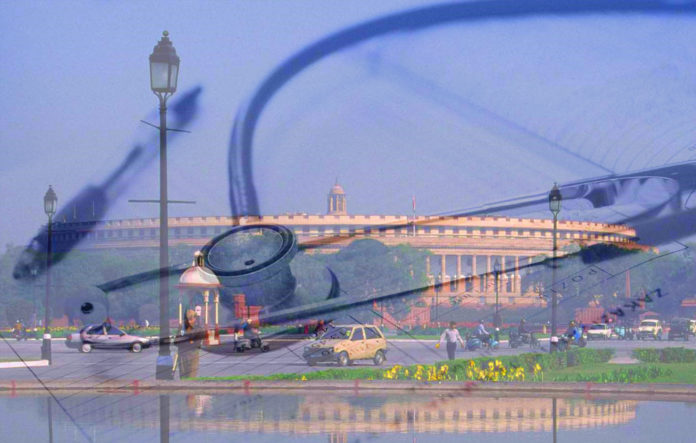It was deja vu on Tuesday as the Lok Sabha decided to send the National Medical Commission Bill to the Parliamentary standing committee for health and family welfare.
It is the second time that the committee will scrutinise a Bill seeking to repeal the Indian Medical Council Act, 1956 that deals with the functioning of the Medical Council of India. In 2012 the same committee had asked the government to withdraw the National Commission for Human Resources for Health Bill 2011 that would have enabled the repealing of the Indian Nursing Council Act, 1947; the Pharmacy Act, 1948; the Dentists Act, 1948 and the Indian Medical Council Act, 1956.
In its 60th report tabled in Parliament in 2012, the committee said: “The Committee, accordingly, recommends that the Ministry may withdraw this Bill and bring forward a fresh Bill after sufficiently addressing all the views, suggestions and the concerns expressed. Before finalising the fresh Bill, the Ministry may hold discussions with all the stakeholders including the State Governments” The UPA government did the needful. Then too doctors had taken to the streets and protested but what was different in that Bill is that one of the criticisms of the Bill by the standing committee was that it did not have a vision for the regulation of AYUSH education. In the present instance one of the most contentious clauses of the Bill is the one that says that AYUSH doctors should be allowed to prescribe allopathic medicines.
For the standing committee though the tough balancing Act may be to reconcile medical community’s concerns with some of its own past observations about the functioning of the MCI. In its 92nd report in which it examined the functioning of the MCI, the committee had identified identified the issues in the sector – failure of the current system to produce doctors including specialists and super specialists, deficiency of teachers in medical colleges, poor regulation of Undergraduate (UG) and Postgraduate (PG) education, opacity in the functioning of the existing regulatory body of medical education (i.e. Medical Council of India), lack of accountability of Medical Council of India (MCI), failure of the MCI in discharging its mandated responsibilities, allegations of rampant corruption in the MCI, prevalence of capitation fee in private medical colleges in flagrant violation of the law etc.
It had also vociferously argued against a system of an elected regulator – the fact that just five members of NMC are elected, is the chief objection of the Indian Medical Association, the largest voluntary organisation of doctors organisation. The standing comittee in that report had said: “The possibility of use of money in elections gives advantage to private management sponsored candidates getting over-represented. Since the number of private medical colleges is increasing, the over- representation of private medical college representative would affect the role and responsibilities of MCI as there is possibility of dilution of standards.”
The need of the hour, the committee had then argued was a regulator that included people from diverse backgrounds. The committee wrote in its report: “The Committee observes that currently the MCI is an exclusive club of medical doctors as the IMC Act does not call for diversity of backgrounds in the members. The Committee also observes that across the world, a perspective has gained ground that self-regulation alone does not work because medical associations have fiercely protected their turf and any group consisting entirely of members from the same profession is unlikely to promote and protect public interest over and above their own self-interest and therefore check-and-balance mechanisms are required. Besides, in today’s dynamic world, inputs from people with excellence and competence in other disciplines are also needed to add value to the working of an oversight body. It is for these reasons that in most countries such as the UK, Australia, etc. regulators are drawn from diverse groups.”
This is why health minister J P Nadda told the Lok Sabha that the government had factored in concerns of the MPs while drafting the Bill. MPs though maintain that what the group drafting the Bill really missed was representation from the medical fraternity. It was drafted by the Niti Ayog with help from the cabinet secretary and health secretary.


